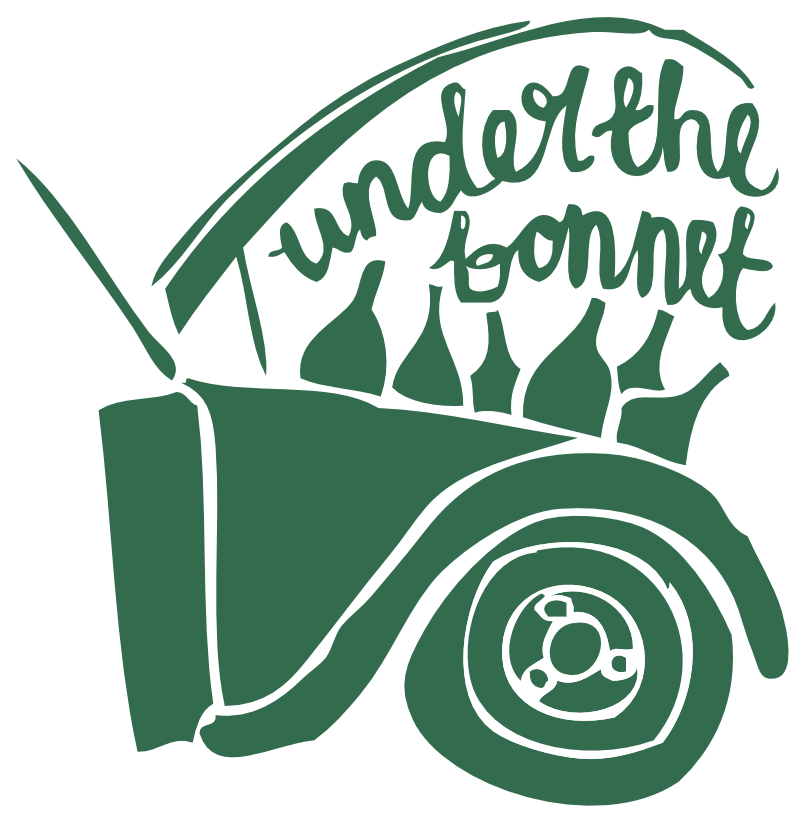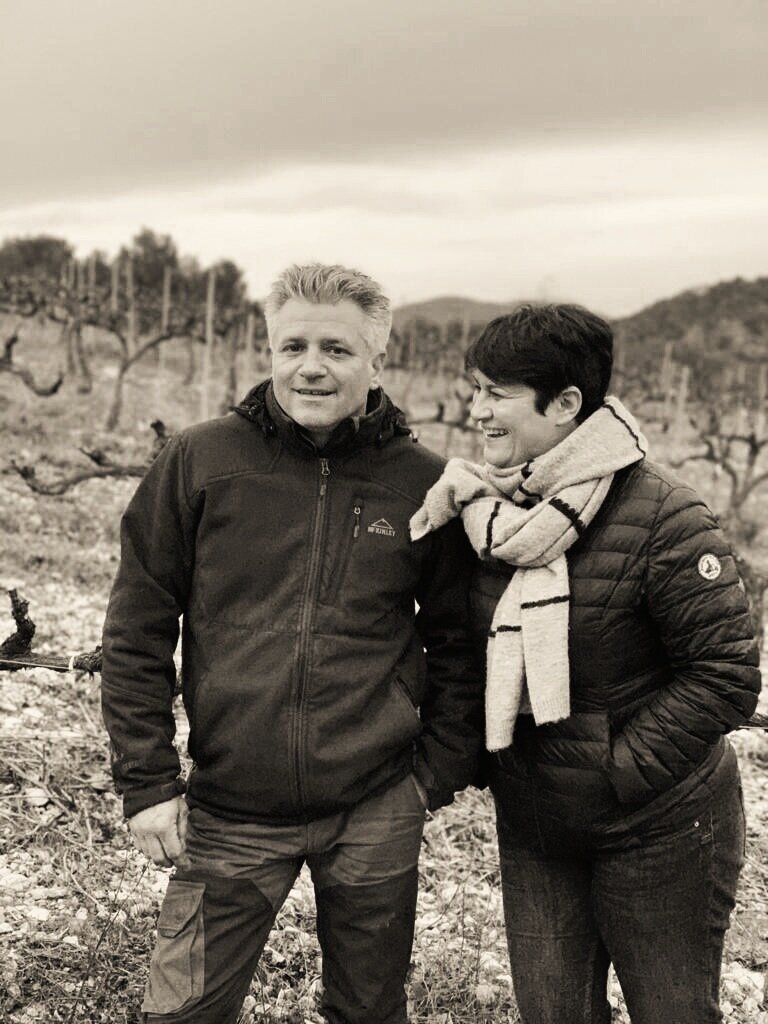La Roche Buissiere
WINEMAKERS
Antoine and Laurence Joly
TYPE OF AGRICULTURE
Organic
VINEYARD AREA
18 ha
COUNTRY, REGION, SUBREGION
France, Southern Rhône, Vaison-la-Romaine
After deciding that studying city water waste management wasn’t for him, Antoine took over from his dad Pierre in 1998. Shortly joined by his wife Laurence, they began vinifying and bottling their own wine.
Organic since the 1970’s Pierre had used to sell his grapes to the local co-op.
Vineyards are planted with Grenache and Syrah. Very intense vineyard work allows for early harvest, resulting in less-concentrated and lower-alcohol wines.
They hand-harvest, don’t use synthetic yeasts, and don’t fine or filter.
FOR ANY UK WHOLESALE AND STOCK ENQUIRIES, PLEASE CONTACT HELLO@WINESUTB.COM
Wines
A Chat with Antoine and Laurence (December ‘19):
How did the 2019 harvest treat you?
Compared to last year, this year has been great. In 2018 we've had lots of rain in spring and lost half of the harvest. This year went well, even though we didn't see a drop of rain for 4 months and had record temperatures of 43 degrees. We have started early (September 23-26) and we did it very fast, because of the heat. All grapes were harvested by hand, as usual.
What is special about the Côtes du Rhône region?
We are in the south of the Côtes du Rhône, in an area called the 'Region les Barronies'. The higher altitude (300-350m) means we get more freshness up here when summers get hot. Because of this, compared to other wines of the southern Côtes du Rhône area, ours end up being more fresh and crisp.
Also, in this region we have a big presence of polyculture. Loads of fruit and olive trees which is great for the soil.
What effect does the clay and limestone soil have on your wines?
These are rich soils which offer a lot of freshness. Two years ago we have started using natural compost as a fertiliser to avoid any sort of intervention. We plant wildflowers in between the vines and once they grow we cut the leaves which form the compost. We then let nature do its work.
Why are you using concrete tanks?
For us, it's a material which makes temperature regulation easy. It stays the same be it summer or winter as it withholds external temperature changes. We use them both for winemaking and also for storage.
What are the biggest changes you've seen in winemaking since you got started?
Clearly, the natural wine movement which is now more stronger than ever. Our domaine has been organically converted since 1976 by Antoine's father, but we have then gone further and started working naturally not only in the vineyard but also in the cave.
All the work we do in the vineyard is to allow the vines to have a natural equilibrium. This is then clearly reflected in the quality of the grapes.
The idea is to be as close as possible to the earth and take what it has to give without any intervention.
Do you think now there are more makers who are converting to bio?
Yes definitely. Near us there are plenty of winemakers who are converting. But then also not everyone is ready to make the change.
I have also more customers who come to the shop and want to find wines with as little sulfur as possible, because they can tell the negative effect sulfur has on their bodies, such as headaches and stomach ache. Or, they are allergic to sulfur. And I find that this sort of customer base is growing. That's good because mentalities are changing and people are asking themselves more often now about what exactly it is they are eating and drinking.
It's essential for us to work with people like you because you can relay our philosophy back to your customers and contribute to the change.
Which wine fairs will we be able to see you at in the coming few months?
Definitely La Dive Bouteille on the 2 & 3 of February 2020 in Angers. That is THE wine fair for us. Just before that will also be at Les Affranchis in Montpellier on the 26 & 27 of January 2020. That's it for us when it comes to big wine fairs.
What I have started doing more of are trips to see clients around France, or smaller events organised by different people we work with.
What can you tell us about your future plans?
We would like to plant more vines in 2020, especially the ones which offer freshness like Cinsault or Mourvèdre.













90% Grenache and 10% Cinsault. Maceration of 4 days, fermentation of 12 days. Aged in concrete tanks, no filtration or fining.